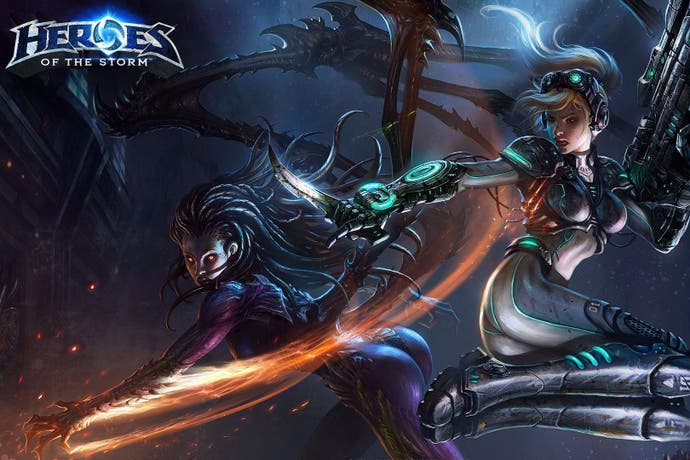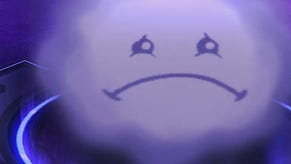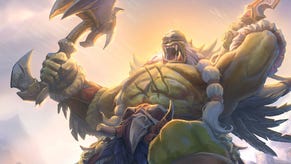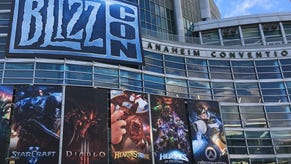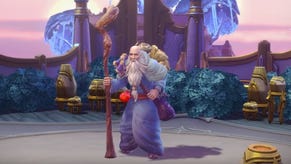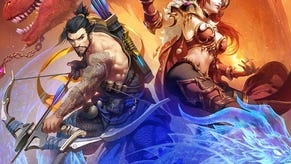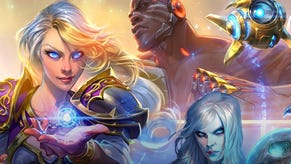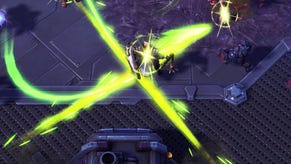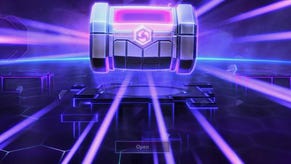Does Heroes of the Storm need saving?
In defence of Blizzard's least impactful game.
I surprised myself, deep into the process of writing this article, with the realisation that Heroes of the Storm had become my favourite contemporary Blizzard game. I tested the theory: I worked through each menu item in Battle.net (sorry, 'Blizzard App') and spent a few hours with all of them. My best StarCraft years are behind me, and I'll probably never have time for World of Warcraft again. I've seen all that I'm likely to see in Diablo 3, Hearthstone's randomness frustrates, and Overwatch's longevity is bound up in having friends who play regularly - mine no longer do. And there at the bottom of the list was Heroes of the Storm, a game with the dubious distinction of being the only game on Blizzard App that did not redefine its genre.
The strange fact of it is that being simply good - rather than capital-I Important - is enough to raise questions about a Blizzard game's future. Failure to become a phenomenon, while not a bar that the vast majority of games would be expected to reach, carries overtures of disaster. If Heroes of the Storm hasn't matched Overwatch or toppled League of Legends, the sentiment goes, then it must be in dire straits. It must need saving, because it's a Blizzard game - they change the world or they die, right? Ask Titan.
I walked into the presser for the game's 2.0 update expecting something much bigger than what was subsequently announced. I was looking for a business model change, a new direction, an overhaul of some kind. The '2.0' moniker encourages that line of thinking, perhaps unintentionally - it communicates a desire for a fresh start, when in fact all Blizzard are doing are consolidating a few years of new ideas and improvements.
What they revealed instead was a new progression system, new unlocks, some new characters and a new map: y'know, update stuff. As if the purpose of an update was simply to improve the game and not to validate the concerns of outside observers. I had been asking myself whether or not Blizzard could save their MOBA: I came away trying to figure out if they needed to.
My subsequent return to the game reminded me of many of the things I appreciated about it when it launched, like its accessibility and the short matches that make it easier to fit into a work day. I also appreciated how much more ambitious Blizzard's character designs have become since those early days, from obvious outliers like base-building Protoss probe Probius to subtler innovations like the role-switching Varian. A few hours later and research had become playing for fun. In the midst of the only substantial break I have taken from Dota 2 in five years, Heroes of the Storm took its place as a game that would give me some of what I love about Valve's opus but with nowhere near the same time investment or potential for strife. Its smaller community is more communicative and friendly, in my experience, than Overwatch's - people even willingly play support - and matches are reliably close-fought and interesting.
These are matters of convenience, however, and Heroes of the Storm's strengths go beyond that - they're just hard to articulate. I'd argue that this is because the strengths of the MOBA as a whole are hard to articulate: these are punishing games that make people angry and unhappy as often as they excite or entertain. They sunder as many friendships as they create. The genre is built using a vocabulary that Blizzard established with Warcraft 3, but MOBAs themselves are the sorts of games that Blizzard would never have invented. They're hard to learn and hard to master. Their long-term appeal is rooted in their intensity and depth, and as a consequence they tend to be exclusive. Perhaps most fatally, they are fundamentally inelegant. Dota 2, my favourite game of all time, is a mess of contradictory rules and deep trenches of arcane design overseen by a single anonymous designer. Icefrog's mad concerto is about as far as you can get from Blizzard, who have been the games industry's most accomplished classic rock covers band since the mid 90s.
Heroes of the Storm succeeds because Blizzard identified a few things about the genre that they were interested in - specifically, map-wide team strategy and fast-paced PVP - and made a game entirely about those things. Most new MOBAs do this to some extent, but Blizzard's clarity of thought is evident in how brutally they excised everything that was not interesting to them. Sacrificing items, individual levelling, skill builds and farming directs player focus entirely at a narrower set of systems where the designers can exercise more control. Its peer in this regard is Battlerite, Stunlock's brilliant indie arena brawler.
The latest additions to the game prove the benefit of this approach: the game has enjoyed a run of creative new characters, and Hanamura is a great map that demonstrates Blizzard's expertise at presenting players with interesting strategic challenges. You have a payload; they have a payload. You need to push yours and stop theirs. How you split your forces between attack and defence depends on the composition and disposition of your team, and whether those gambits are successful hinges on both top-level strategic nous and individual flare. These are the vital building blocks of a MOBA, and because Blizzard controls Heroes of the Storm's playbook they are able to reliably call upon the genre's best experiences: last-ditch turnarounds, clutch saves, and so on. There is very little of the creative strategic freedom that Dota 2 offers, but the experience is more consistent.
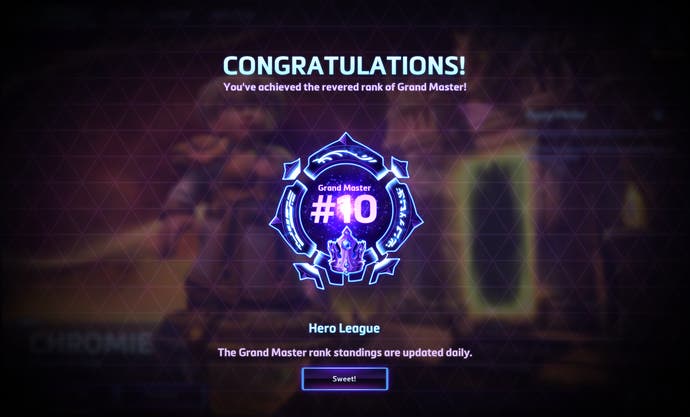
Heroes of the Storm's early esports offering suffered for exactly this reason, however. To this day I don't think it provides the best players with enough freedom to meaningfully express themselves, and this puts it a long way behind League of Legends and further still behind Dota 2. There simply isn't enough chaos to create the kinds of memories that Dota 2 reliably generates, game after game.
The first time I saw Heroes of the Storm played live it was at Road To Blizzcon 2015 in Prague, and it was unquestionably the weakest esports showing I had ever seen for a major game. Whoever had designed the stage forgot to include a screen in the middle, which meant that a full two thirds of the audience couldn't see. Czech teenagers drifted out to the lobby to watch the games on their phones, or just went home. And the games themselves weren't much better: by-the-book scrambles to see who could stick most rigidly to the agreed-upon playbook that too often hinged on an error than on an act of skill.
I forecast doom for the game's professional scene at that point and, if the subsequent departure of the major esports organisations are anything to go by, I wasn't alone. Blizzard's subsequent reinvestment in the game in the form of the salaried Heroes of the Storm Global Championship surprised me, but now I see their logic: in the absence of the traditional esports outfits, and perhaps due to Heroes of the Storm's intense focus on teamwork, the top spots in the pro circuit have come to be occupied by groups of friends who simply happen to be very, very good at this game.
Heroes of the Storm has found its niche not as a top-tier esport like League of Legends or Dota 2, but as one of the industry's most reliable sources of Cinderella stories. Whether or not the game is a success - whether it needs 'saving' - depends on how you're judging success. Heroes of the Storm hasn't overthrown the old order, but it has found its own voice.
Heroes of the Storm's successes are too subtle and its ambitions are too specific for it to ever match Overwatch's impact. Yet if it's a success in the eyes of the people who are playing closest attention to it, does that matter? Its talent system and mana wells have subsequently shown up in Dota 2, and its jungling mechanics and per-player quest system have drawn the eye of Riot. It has influenced the giants of its genre but, unlike other Blizzard games, it hasn't knocked them out of the way. There is no question that Heroes of the Storm occupies, at best, third place behind those games: but has anybody ever needed saving from a podium?
This article is based on a press trip to Paris. Blizzard covered travel and accommodation costs.
